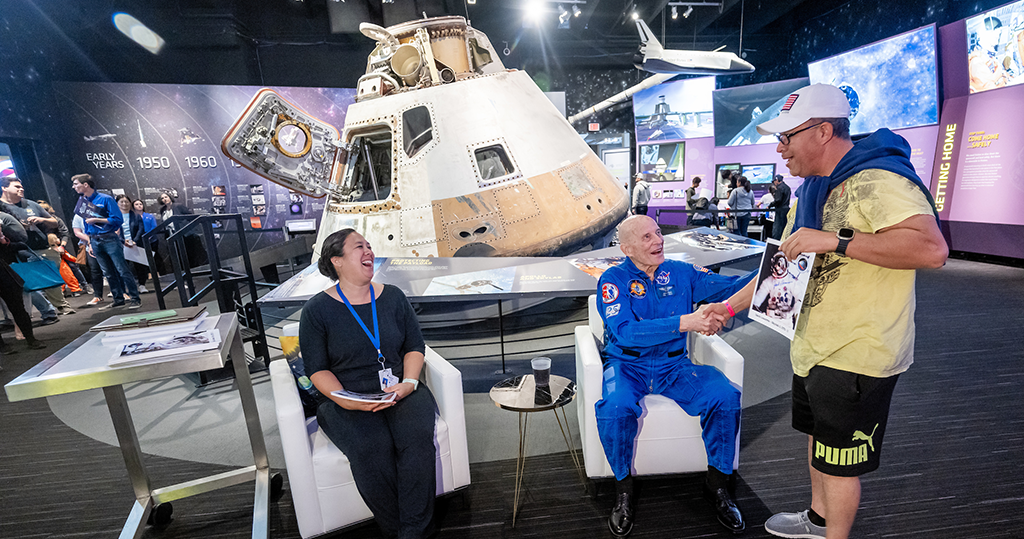
Interview: Karyn Torigoe of the Great Lakes Science Center
On the edge of Lake Erie in Cleveland is the Great Lakes Science Center (GLSC), where you’ll find Karyn Torigoe working hard to prepare Northern Ohio for the upcoming total solar eclipse. Torigoe, the senior manager of STEM Programs and Evaluation at the GLSC, developed its eclipse ambassador program. Through the program, they’ve identified 30 diverse partner organizations across northern Ohio, many new to GLSC and all in the eclipse’s path of totality.
Essential components of the ambassador program are the training sessions in the months leading up to the eclipse. They help prepare partner organizations to host safe, educational and engaging eclipse events that bring communities together. At the same time, the ambassador program is helping Torigoe and GLSC bring STEM learning out of the museum and into communities.
We recently spoke with Torigoe about herself and her work. The transcript below has been edited for clarity and brevity.
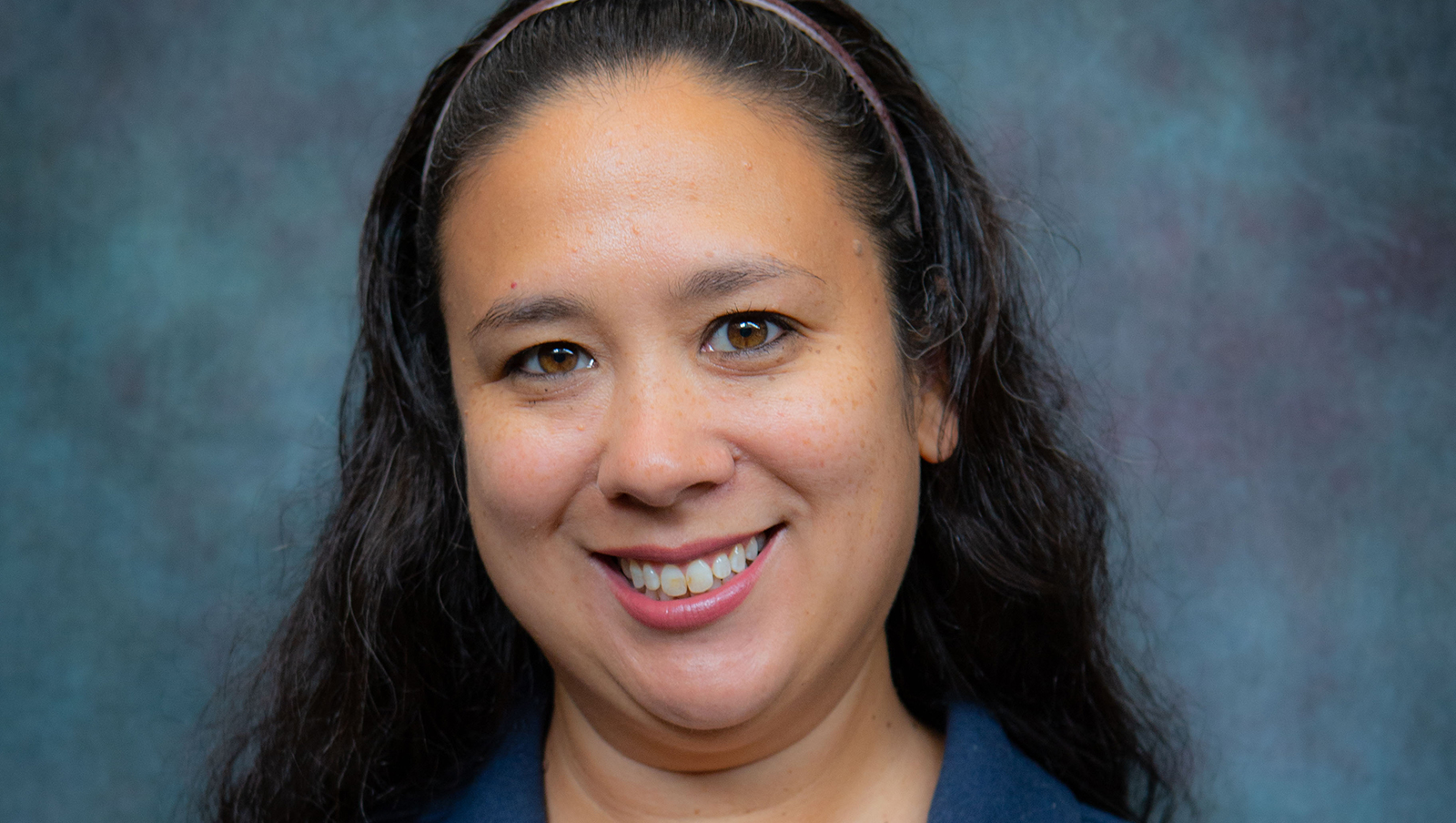
Thanks for joining us, Karyn! Tell us about yourself.
I have been working here for a little over nine years now. I had worked in schools for almost 10 years prior to that, in both formal school settings and also running some informal education after-school programs. At the time, I had two very young children, and I really enjoyed taking them to science museums. So when the opportunity arose, I said, “I would love to work at a museum!”
I currently manage all of GLSC’s school, camp and grant-funded programs. My favorite part of what I do is providing experiences for people who normally wouldn’t have access to these experiences or who wouldn’t even know that they exist. We’re providing a fun experience while teaching necessary skills that they can use regardless of what career they go into.
What is your favorite memory of the sun?
My favorite memory of the sun is actually a recurring moment when the sun just streams in through the windows. I find it very relaxing. Growing up and living in northeast Ohio, sun is a limited commodity here, to put it nicely. I really savor those moments. It does not just supply beauty but warmth as well. I am that person who will find the beam of light and sit in it to soak up the warmth and feel illuminated by it.
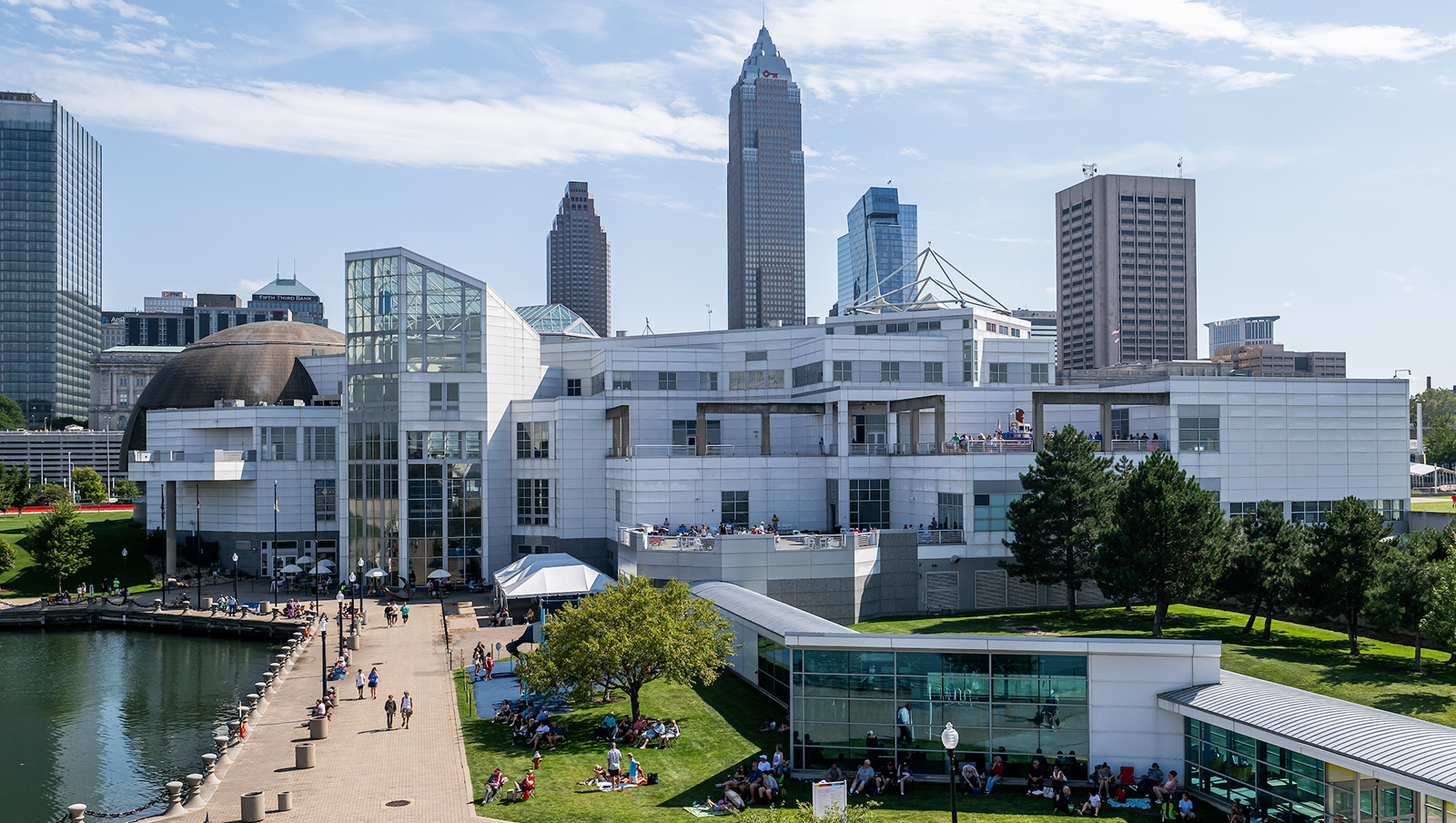
What has your relationship with science been like throughout your life?
I never felt I had a direct relationship with science, but looking back, I was always a curious kid. I was the kid who took apart things in my house to see how they worked, and then put them back together. I remember learning how a screwdriver worked at a very early age and just unscrewing the air vents in my house. My parents were upset because I would take things apart and not always be able to put them back together. But I look back at those days and wish that somebody would have recognized that curiosity and encouraged it. That’s why I love what I do now. I love working with students and showing them all the possibilities or even just saying, “Hey, you’re really good at this! Did you know that engineers do this? Did you know you can be an engineer?” So while I never saw myself directly engaged with science, I do think I’ve always been curious, and I wish that back then we had the resources we have today.
What is the Great Lakes Science Center’s plan for the 2024 eclipse?
We are very excited! Here at the Science Center we are planning a three-day Eclipse Festival. We are working with NASA because we have a NASA Glenn Visitor Center in our museum. We’re also inviting the Cleveland Orchestra to play some really cool eclipse-themed music and just have a party surrounding the eclipse. Most important, though, we are educating and trying to provide resources for safe viewing practices. We are also really excited about what we’re doing with our eclipse ambassador program. We are partnering with 30 different organizations that we’ve never worked with before.
Can you tell us more about the ambassador program?
The organizations we are partnering with are spread out across the path of totality in northern Ohio. When we were choosing our partners, we wanted to make sure that we were spread out geographically, and we weren’t just huddled in one area. We went directly to organizations that we thought would be a good fit, but we also did a press release on the program where we were able to talk about it through a TV media event. I really pushed for that televised media event, because we didn’t know who we should be reaching out to when looking for new partners. That televised media event is how we got a lot of the applications.
Our partners range from a rural county fairground to senior centers, small churches, other types of museums and even a boat club that is right on Lake Erie. We’re also partnering with the city Health Department. They saw this and wanted to promote safe viewing as well, so the resources we provide will help with that. We’re also hosting training sessions here at the science center. What I’m really excited about is the diversity between them all. The fact that we have a senior center, a parks district, an arts organization and a whole city is really exciting! We feel that we’ll be able to help provide these experiences for more people because of our range of partners.
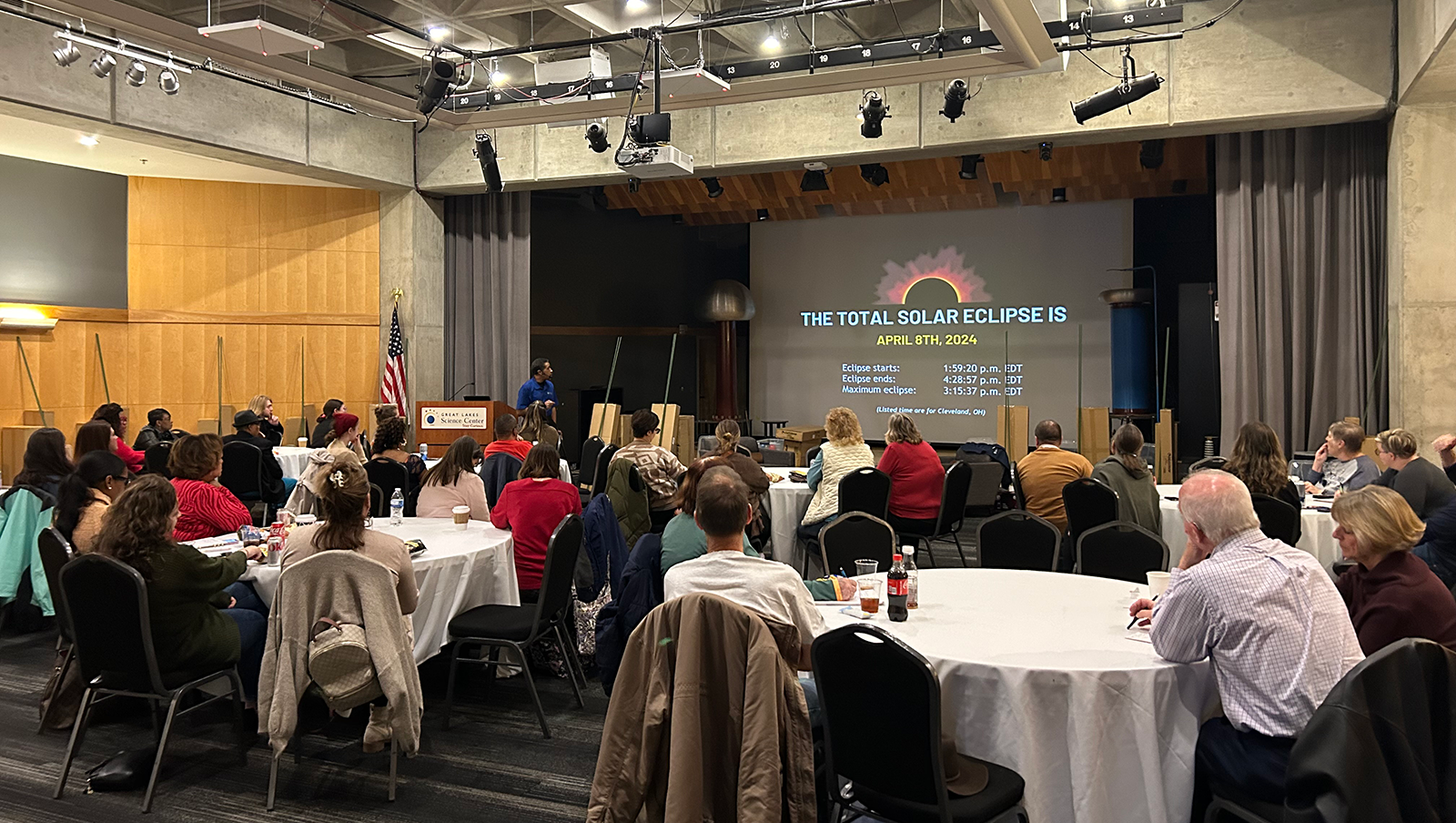
How have you been reaching people who may not know about the eclipse?
A lot of that is achieved through education. Once again, not just focusing on the physical aspects of what’s happening with the sun and the earth and the moon but focusing on everything else that’s going to be around it. What are you going to be hearing or not hearing? What do you think you’re going to feel like? And I think another piece that we recently just started adding into our training for ambassadors is, How do we approach events? How do make sure people with other abilities are able to experience this event as well, and make it just as awe-inspiring for everybody? I really think that all of those pieces are key to explaining the magnitude of this event.
What do the next couple of months leading up to the eclipse look like for you and the museum?
In the next couple of months we are going to be very busy training and preparing our ambassador locations. We want to help them understand the best ways to use their space and reach their audiences to better serve their communities. We’re working to train and equip all of our ambassadors and make sure they have what they need moving forward. We will also be checking in with them periodically as they start putting things in place for the day of the eclipse. We’re hosting three formal training sessions. We have one here at GLSC, one in western Ohio, and one south of Cleveland. It’s also great to travel to our partners to see their spaces and check in on their plans for the eclipse.
And what will you be doing on the day of the eclipse?
I’m really looking forward to experiencing this eclipse with my children. They hear me talking about this and working on it a lot, so they’re also excited. I want to experience it with them because I want to be able to explain what’s going on, and I want to see their reactions. It will be about 400 years before the next total eclipse in Cleveland, so it’s not going to happen again in our lifetimes. This is literally a once-in-a-lifetime event for people here, and I really want my kids to remember it.
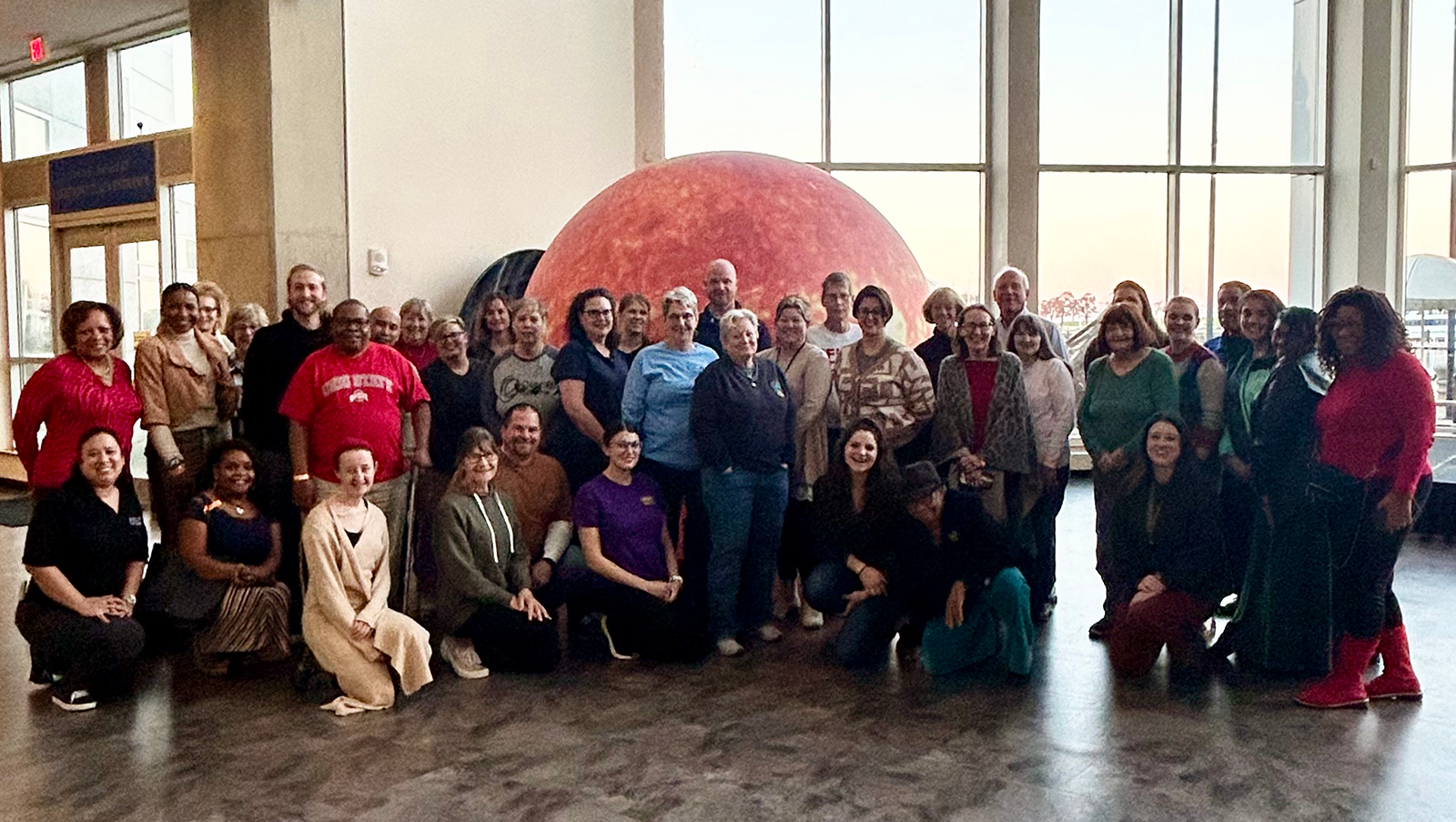
What is exciting about the aftermath of the eclipse for you and for the Great Lakes Science Center?
I think what we’re most excited about is the fact that now we have 30 new partners. The most exciting question is, What’s next? We can build on the relationships we’ve established with these 30 organizations to meet the needs of those communities. The most exciting part of this is, it’s not just focusing on the eclipse. Yes, we’re so excited to have the eclipse, but now that we have these partners, I keep asking, What we can do to move forward? Just having that question there is the most exciting part.
What advice do you have for other organizations looking to bring people and communities together through this sort of outreach?
What works best for us is making sure that our message is far-reaching, because you don’t know who’s out there. You don’t know who would make a great partner, so trying to have a far-reaching message is really helpful in getting that word out. It definitely helps to have a very specific program to focus on, because that helped us generate interest and guide the beginnings of this program. Then you can take it from there, and you can see what’s next.
Thanks for joining us, Karyn!
Thank you!